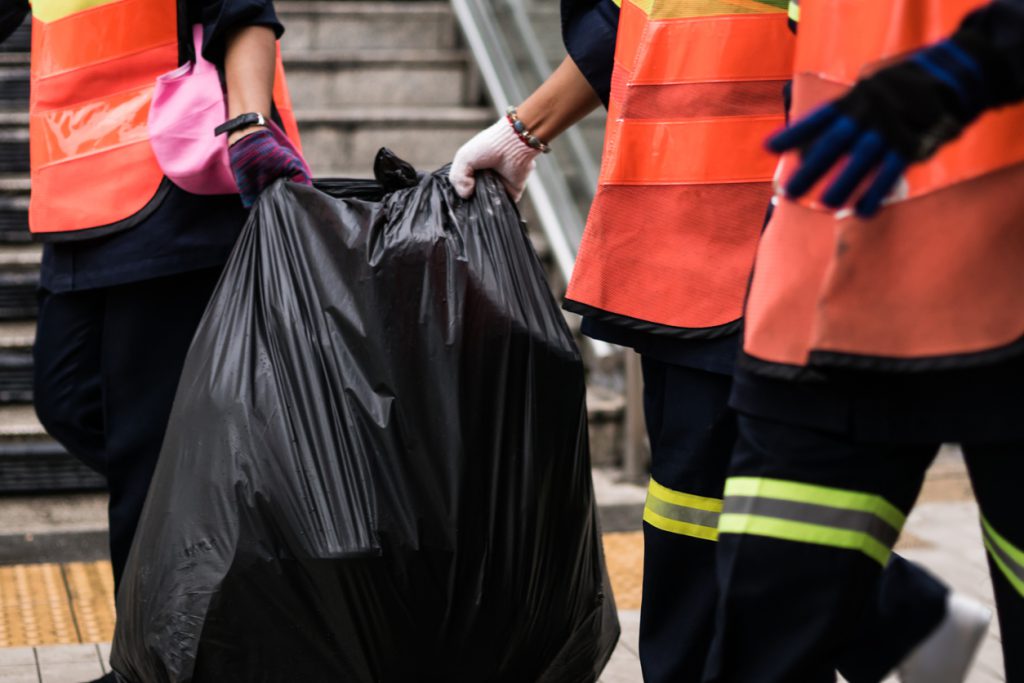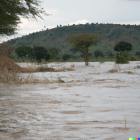In March of 2020 the first case of COVID-19 was reported in Kenya. Along with being a global pandemic it also brought the issue of bio-hazardous waste associated with protective gear. National Environment Management Authority (NEMA) put in place guidelines to guide the handling and disposal of these hazardous material, but in a recent report NEMA says this waste is being improperly managed.
The guidelines were put in place in accordance with the Environmental Management and Coordination (Waste Management) Regulations of 2006, which has provisions for handling and disposing of Biomedical waste. The guidelines are to protect those handling the waste as well as the general public from COVID infection.
Hospitals and other medical facilities are more prepared to handle such waste, it is the general public that is the main culprit in mishandling biomedical waste.
People were mandated to wear face masks in public, which introduced a whole new source of biomedical waste. According to UN Environment Programme UNEP, 75% of all waste in any category ends up in landfills or floated into oceans. The introduction of masks is a global environmental disaster then. That is where NEMA’s regulations would come to play.
What are these regulations?
Generally, all the regulations pertain to 2 objectives.
- Segregation of biomedical waste.
- Disposal of biomedical waste.

Their application is in the form of;
a) In gated community, apartments, residential areas, factories, institutions, office blocks, the management or the owner of such facilities will provide medical waste pedal bins that will have biohazard bin liners. The management/owners will engage a licensed hazardous waste handler to collect and transport the infectious waste for a final disposal in accordance Environmental Management and Coordination (Waste Management) Regulations of 2006. Hence forth referred to as – EMC (Waste Management) Regulations of 2006.
b) In the rural and small urban centers at the ward level, the County Governments shall provide the same waste bins as in (a) above that will be placed either at the Chiefs Camps, ward offices, or health clinics and any other appropriate designated places that will be communicated to the public. Collection of such hazardous waste from such designated places shall be done through a licensed infectious waste handler.
c) In the public places including markets, bus/ matatu terminals, the county government shall provide to the general public Covid-19 related medical waste pedal receptacles that will have biohazard bin liners installed strategically in the public places and well secured and labelled infectious waste. Each of the county government shall engage a NEMA Licensed infectious /biomedical waste handler as required by EMC (Waste Management) Regulations of 2006.
d) If no special garbage bins are available, residents could spray disinfectant on both sides of their used masks with recommended disinfectants and fold them up before putting them into a sealed bin liner in the dustbin.
GUIDELINES FOR WASTE COLLECTORS
• Handle carefully all biomedical waste to avoid spillage of the same on the road/Highways during transportation.
• Ensure regular sanitization of workers involved in handling and collection of biomedical waste.
• Workers shall be provided with adequate PPEs, including three (3) layer masks, splash proof aprons, gowns, nitrite gloves, gumboots and safety googles.
• Use a dedicated vehicle to collect COVID-19 ward waste.
• Vehicle should be sanitized with sodium hypochlorite or any appropriate chemical disinfectant after every trip.




